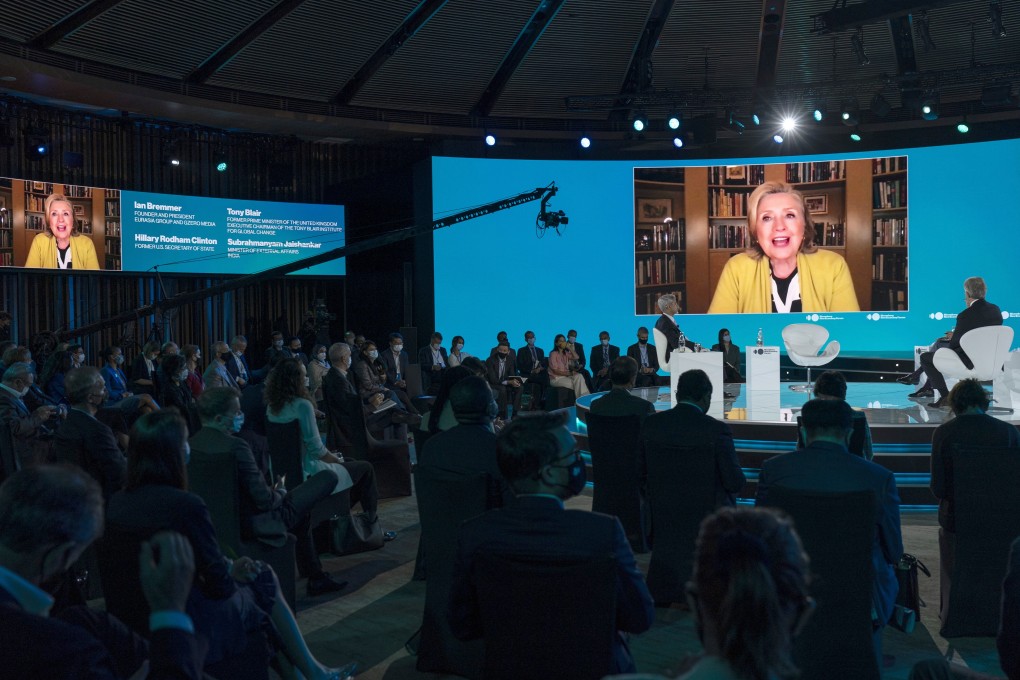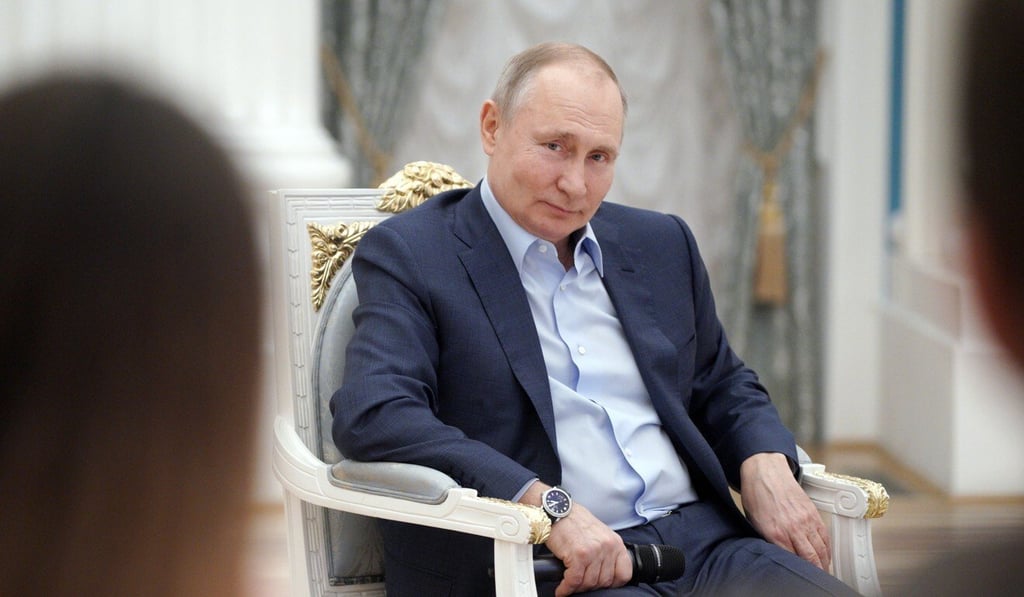Advertisement
Beware Putin amid US-China rivalry, Hillary Clinton warns at Singapore forum on emerging new world order
- The Russian president has sought to ‘hug China more’, as he uses non-state actors to project power globally, the former US secretary of state said
- Other speakers on the final day of the Bloomberg New Economy Forum included Indian Foreign Minister S. Jaishankar and former British PM Tony Blair
Reading Time:3 minutes
Why you can trust SCMP
29

Amid the United States’ rivalry with China, Washington and its Western allies must remain wary of Russian President Vladimir Putin and his use of dubious “non-state actors” to sharpen his global projection of power, former US Secretary of State Hillary Clinton has said.
Speaking via video link on the final day of the Bloomberg New Economy Forum in Singapore, Clinton noted that earlier expectations that Russia’s border problems with a rising China would lead to improved ties with the West had not materialised.
While Putin has sought to “hug China more” in the hope it would stave off bilateral problems, he had also continued to sharpen his power elsewhere through non-state actors, Clinton said.
Advertisement

She was speaking as part of a panel on the emerging world order with Indian Foreign Minister S. Jaishankar and former British prime minister Tony Blair.
Advertisement
“He has a very large mercenary force that has been operating everywhere from Syria to the Central African Republic [and] he has a very large stable of hackers and those who deal with disinformation, cyber warfare both in and outside of the government,” she said.
Advertisement
Select Voice
Choose your listening speed
Get through articles 2x faster
1.25x
250 WPM
Slow
Average
Fast
1.25x